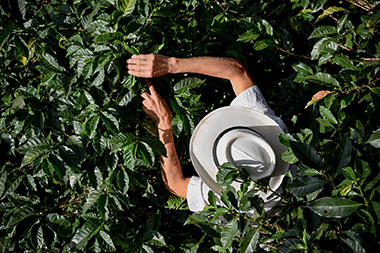Agricultural Science and Technology Indicators (ASTI) officially launched its new agricultural research and development indicators for Latin America and the Caribbean at a roundtable event at the Inter-American Development Bank (IDB) on Wednesday April 27.
The data, available online and summarized in a new regional report, “Agricultural Research in Latin America and the Caribbean: A Cross-Country Analysis of Institutions, Investment, and Capacities,” represents work by the ASTI team and its national partners collecting and analyzing agricultural research and development indicators from 27 countries across Latin America and the Caribbean.
At the launch event, ASTI Program Head Nienke Beintema, Senior Research Fellow Alejandro Nin-Pratt, and Program Manager Sandra Perez summarized main findings, described regional productivity trends, and showcased ASTI’s new Spanish language website.
Pedro Martel, division chief of the IDB’s Environment, Rural Development Disaster Risk Management division offered welcoming remarks and Cesar Falconi, principal economist in the same division and a key supporter of the project, gave opening and closing words, and encouraged the lively and open discussion.
“The LAC data collection is the most complete coverage in ASTI’s history,” Beintema told the audience. “We surveyed close to 700 government, higher education, and nonprofit agencies.”
The new data tell a positive story of the region, with both agricultural research spending and number of researchers increasing dramatically (at 37 and 20 percent, respectively) since 2006.
However, ASTI presenters emphasized that the picture was not rosy for every country. Many Central American countries, Caribbean island nations, and poorer Andean countries are increasingly falling behind in terms of infrastructure, investment levels, and capacity, while an aging pool of scientists— particularly those with PhD training—raises concerns about future knowledge gaps.
Nin-Pratt noted that many of the factors that led to a “perfect storm” of high agricultural productivity in the region in recent years—high commodity prices, favorable policy changes, new technologies, and private sector investment—will not be sufficient to sustain this production in the future. “Future growth will depend on efficient innovation systems,” he said.
As Beintema concluded, “Given the critical role of agricultural research in addressing climate change, persistent rural poverty, and other challenges, stable and sustainable levels of funding are key.”







